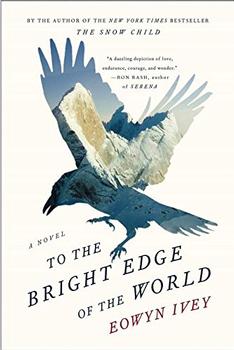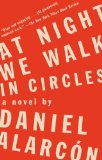Summary | Excerpt | Reviews | Beyond the book | Read-Alikes | Genres & Themes | Author Bio

The Lost City wavers between character-driven drama
and adventure tale. The novel begins with a triptych
illustration of the Peruvian landscape. The hot, barren
desert; the gray, fogged desert and the luscious green coast
smacks of hell, purgatory, and Edenic heaven. Shukman makes
the reader wait through three pages of detailed scenery
depiction before giving the main character's name, Jackson
Small. Shukman takes his time to build the expectation that
rugged, difficult nature will play a main character opposite
Jackson - but all is not as it first seems.
Jackson is escaping his present-day existence by searching
for ancient ruins in the Peruvian unknown, and until he runs
into some unexpected company while he's brewing tea over his
campfire, nature seems like the only real obstacle to his
quest. Then, humanity charges in, and the beautiful, lyrical
descriptions of desert, sky, and wind are left behind, along
with the notion that nature will play any part in this story
beyond setting the background.
The exposition is so good that as the novel slides into a
different type of story, it is difficult to let go
of the man-versus-wild expectation set at the beginning; but
the tale quickly evolves into a treasure hunt for both
Jackson's purpose in the world and the lost city of La Joya,
which is fabled to be in the middle of the cloud forest, an
almost impenetrable section of the jungle where the sun never
shines and interminable fog hangs amongst the trees. What
could have been a relatively easy trek into the jungle is
made difficult by Jackson's emotional attachments, promises
to old army majors, and violent drug lords. Also in the back
of Jackson's mind is the mysterious Connelly, a man who has
left an indelible mark on Jackson's soul. By the end of the
novel, it is clear that the title means far more than what
Jackson hopes to find in the forest.
Shukman tackles some large ideas in this adventure novel:
America and Britain's involvement in Latin America; modern,
urban life versus a simpler, pastoral existence; the
definition of family; sexuality; and the drug wars. The
characters discuss and wrestle with these notions, but do
not resolve them. Jackson evolves into a different person as
the novel progresses, but the illustration of his
development takes second place to the suspense plot, and
this is a missed opportunity. Jackson could have borne the
burden of wrestling with weighty issues, but the driving
action plot does not give him the time to deal with them.
When given the choice between developing Jackson to his most
complex and interesting or creating a high drama scenario,
Shukman chooses the latter.
The strength of Shukman's work is the description of the
scenery. The Lost City works best when Jackson is
alone in the forest and desert, the delicate descriptions of
cloud and fog, and the elegant illustrations of ancient
cities shrouded in vines are beautiful and evocative.
Shukman's pacing and gift for language are well showcased.
The Lost City is a great adventure story, but the
promise of the grand exposé, with complex character
development to follow, is unfulfilled. Whatever Shukman's
intention, either character drama or action tale, The
Lost City is riveting. Jackson's adventures, the
characters he meets, and the powerful descriptions of a
beautiful landscape make this novel, but ultimately, the
desire to know if Jackson ever finds 'the lost city' is what
keeps the pages turning.
![]() This review was originally published in The BookBrowse Review in February 2008, and has been updated for the
April 2009 edition.
Click here to go to this issue.
This review was originally published in The BookBrowse Review in February 2008, and has been updated for the
April 2009 edition.
Click here to go to this issue.

If you liked The Lost City, try these:

To the Bright Edge of the World
by Eowyn Ivey
Published 2017
From the bestselling author of The Snow Child, a thrilling tale of historical adventure set in the Alaskan wilderness.

by Daniel Alarcon
Published 2014
The breakout book from a prizewinning young writer: a breathtaking, suspenseful story of one man's obsessive search to find the truth of another man's downfall.
Your guide toexceptional books
BookBrowse seeks out and recommends the best in contemporary fiction and nonfiction—books that not only engage and entertain but also deepen our understanding of ourselves and the world around us.